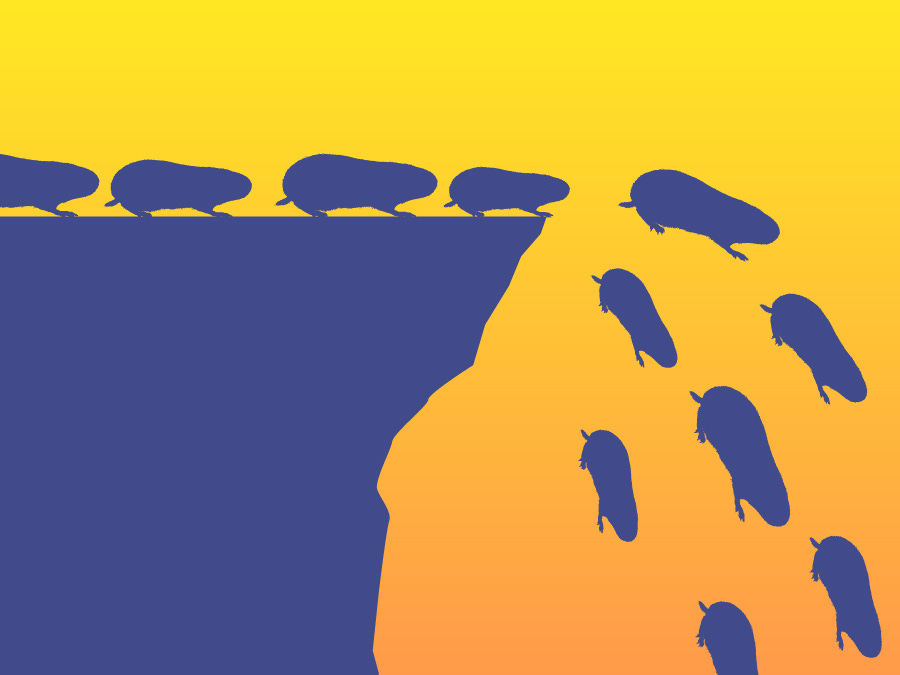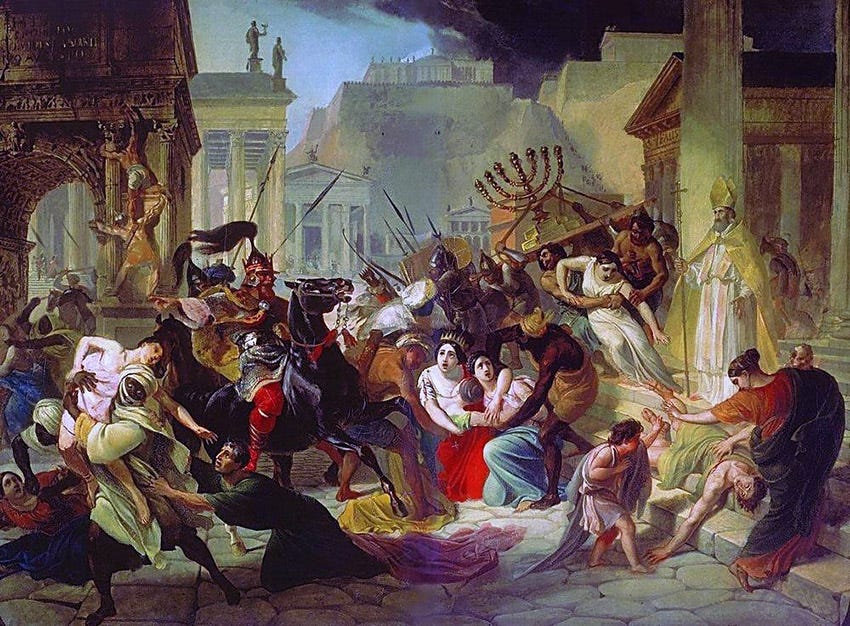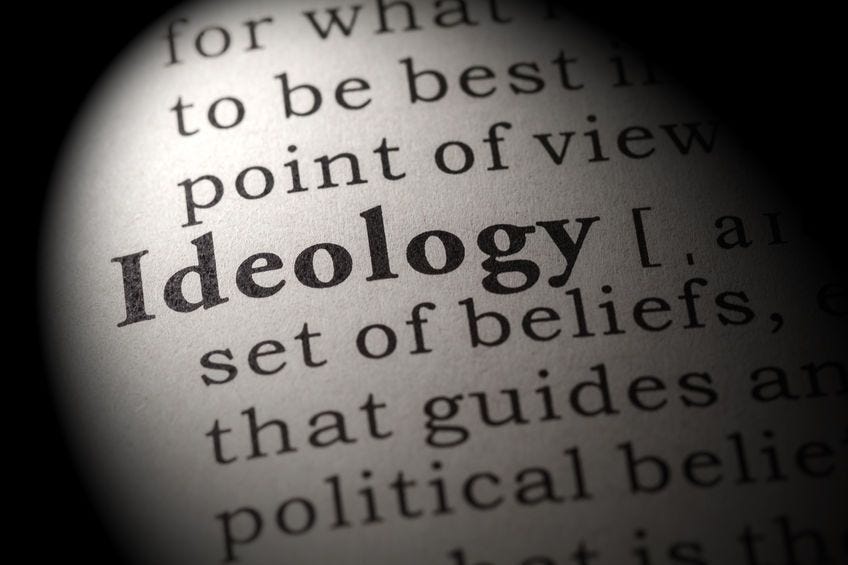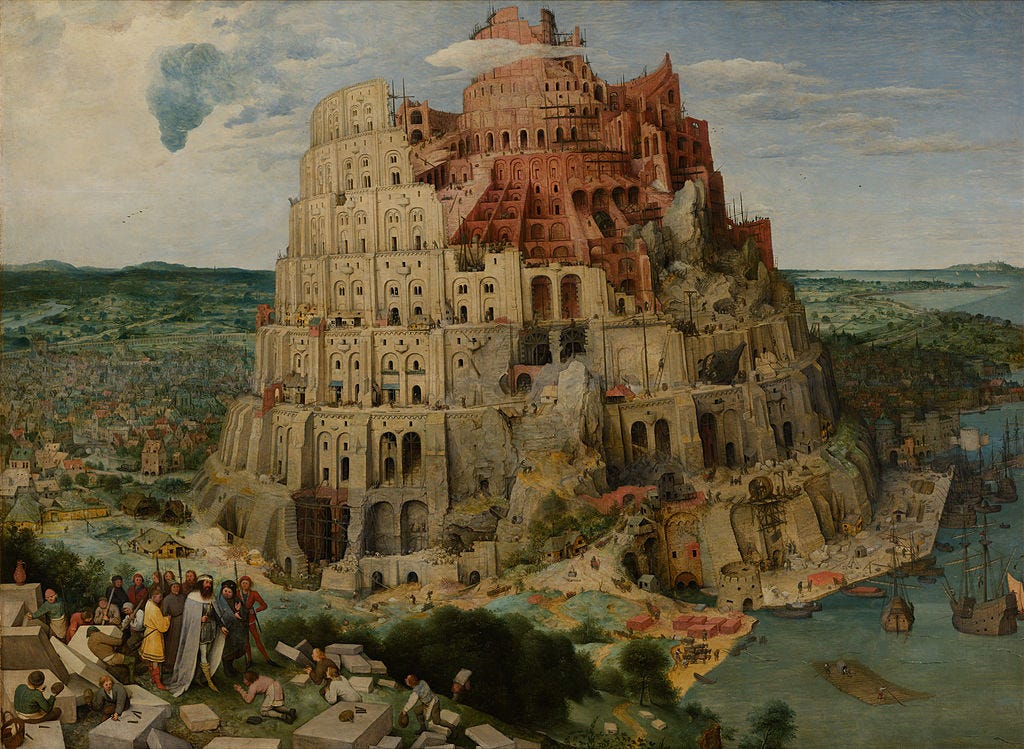Epistemic Regimes and
In Pursuit of Truth
This post is brought to you by a good friend and special guest blogger, who wishes to remain anonymous. This individual is a clinical psychologist and university professor. Together, we are co-authoring a book on critical pedagogy. This post is a preview of what you can expect to see upon publication.
———————————————————————————————————————————
While reading Jonathan Rauch’s newest book, The Constitution of Knowledge: A Defense of Truth, I came across a line that floored me. Rauch says, “Although members of the reality-based community may be blind to their own errors and biases, they are not blind to the errors and biases of those with whom they disagree. What matters is not that individuals in the community be unbiased but that they have different biases, so that I see your mistakes and you see mine” (p. 73; emphasis in the original text).
Reality-Based Communities as a Public Good
The truth in Rauch's aforementioned statement cannot be understated. Free inquiry, debate, exploration, and scientific pursuits (use of the scientific method) are vital to a functioning, knowledgeable, and truth-seeking society or what Rauch calls the “reality-based community.” More importantly, this system for seeking knowledge and truth is predicated on the necessity that all humans possess the opportunity to speak ideas aloud so that the collective responses can negate or shore up ideas propelling humanity closer to truth. Think of this as “the wisdom of crowds” emerging over time to triumph over individual cases of ignorance, lying, or ideological capture.
The beauty in this is that many people can be dead wrong about a lot of things but that need not necessarily inhibit the accumulation of truth and knowledge over time. Further, the rate at which we can achieve truth on a given matter at this time in human history is far more accelerated than during any prior system for knowledge or truth acquisition. As Rauch states, “[o]ther epistemic regimes take four decades to correct their errors, to four centuries, or forever” (p. 75).
It has taken millenia for humanity to circle around this notion of free inquiry, science, and debate that does not result in violence as a means to crown winners of knowledge and truth. Rauch ascribes the following principles to be foundational to a reality-based community where matters of knowledge and truth are discussed, investigated, and discerned:
1) Freedom. Reality-based communities encourage individual autonomy, empowerment, and agency and disallow the use of force or intimidation to control what others say and believe.
2) Knowledge. Systems within reality-based communities can effectively discern reality from non-reality.3) Peace. Systems reward social conciliation and embrace doubt and disagreement. Disagreements are seen as opportunities for resolution or solution and these communities promote tolerance where disagreements cannot be resolved or solved.
3) Peace. Systems reward social conciliation and embrace doubt and disagreement. Disagreements are seen as opportunities for resolution or solution and these communities promote tolerance where disagreements cannot be resolved or solved.
Such principles serve as a “public good” in Rauch’s mind, which connotes the social component to what it takes to pursue knowledge and truth in a more effective manner. In point of fact, these foundational values have helped usher in the most nonviolent, accurate, democratic, and efficient system ever known by humankind. However, this “reality-based community” could collapse or be severely maimed if we do not produce a society that continues to operate in a manner that values these principles or wishes to remain a part of the reality-based community altogether. What could cause its demise?
Critical Pedagogy: Narrative, Conformity, & Agitation
Critical pedagogy and its ilk--much of today’s “anti-racism,” critical race theory, other critical studies, “wokeness”-- is the most recent anti-reality-based epistemic paradigm that is and could continue to silence debate and diversity of viewpoint. Why is this a problem? It is a problem because when we prevent people from voicing a dissenting or differing viewpoint, we close ourselves off to the possibility of expanding our knowledge or severely turning down the flow of knowledge to a trickle. This contraction of knowledge leaves only one or a handful of ideas to serve as the fund of knowledge. Proponents of critical pedagogy want critical pedagogy to be seen as the only knowledge or truth anyone should need. This is a problem that goes beyond the practical concern of offering one variable to explain a world that is inherently multivariate. The problem extends well into the moral and even spiritual domains of life as the ideology makes a turn into the sacred and hallowed.
When critical pedagogy--or any ideology--becomes hallowed and sacred it removes all oxygen from any other ideas or evidence that would dare threaten its hegemony. No other biases, perspectives, or even empirical evidence is allowed to penetrate the ideology’s assumptions. This violates all three principles of Rauch’s reality-based community. Consequently, there are fewer opportunities to identify and correct errors in the ideology’s assumptions so we can make the long, hard walk to truth. The collective can only correct and reorient society to reality if there is diversity of viewpoint and a commitment to freedom, knowledge, and peace. A collection of ideologically captured individuals yields an epistemic dead end that lacks efficiency, that often devolves into aggression and violence, is authoritarian and totalitarian, distorting rather than drawing out the truth.
Critical pedagogy is an ideology that is not interested in viewpoint diversity, knowledge rooted in evidence, or dissent. Instead, it is interested in promulgating a certain set of beliefs and dogma that already and will continue to slow the process of error correction just as all prior ideologies, religions, and superstitions have done until the Enlightenment.
One tragedy with the pernicious influence of critical pedagogy today is that we live in a society that is the most free and inclusive of any other society existing currently or that existed in the past, yet this ideology is creating a world that squanders that freedom and diversity of people. Having a world like ours enables us to more fully realize the potential of the values born from the Enlightenment, which includes valuing diversity of thought. We still have individuals today who are completely ignorant or intoxicated by some ideology or belief system not based in scientific liberalism, but because we have a freer, more diverse, and inclusive society than has ever been known, we have the greatest capacity to effectively combat errors in thinking to advance knowledge and truth at the societal level.
The crowning achievement of Western Civilization and of the pursuit of reality-based communities could fade away as a historical memory if we let the current ideology of critical pedagogy triumphantly assert its regressive epistemic regime. Critical pedagogy disdains free inquiry and eschews a commitment to scientific experimentation and the principles of freedom, knowledge, and peace as bedrocks of the pursuit of knowledge and truth. When a set of ideas becomes an ideology as is the case with critical pedagogy, what is left are narrative, conformity, and agitation.










